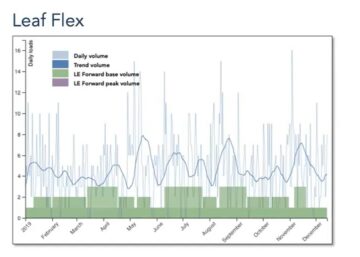By Jeff Hartman – January 3, 2023
The STB, struggling since inception in 1995 to develop a fast, affordable, and reasonable method that provides relief to rail shippers challenging unfair rates in “small” zero-sum disputes in which a single railroad dominates the market, will shortly employ Final Offer arbitration to make a binary choice between competing final proposals from railroad and shipper that make the case for what each considers the highest reasonable shipping rate.
Previous efforts by the STB to provide tools for addressing smaller disputes were rarely used by shippers.
The STB’s Final Offer rule is designed as a backup in the case of the failure of a companion STB rule that provides for speedy voluntary, affordable arbitration to resolve rate challenges by stakeholders of any size where the dispute is less than $4M within a two year period—if all Class I railroads agree to use it.
Final Offer theory, developed in the 1940s in the United States, has notably been used by Major League Baseball to resolve disputes as well as state and local governments dealing with unions that are not legally permitted to strike.
In a Final Offer situation, stakeholders do not know what maximum reasonable rate the other side will propose and are thus incentivized to submit proposals that are more rather than less reasonable, and, thus, more likely to be chosen by the arbitration entity. This is markedly different from traditional reasonableness disputes, in which arbitrators would typically split the difference between rate proposals, encouraging participants in the dispute—who knew how the system worked—not only not to be reasonable from the git-go, but specifically to start by proposing unreasonable rates, figuring that whatever they proposed—reasonable or not—was likely to be averaged away.
If—and only if—all seven Class One railroads agree to STB-specified voluntary arbitration proposed in the new rules, the STB’s voluntary arbitration rule will be implemented and the railroads will be exempt from the Final Offer Rate Resolution (FORR) rule for five years.
The FORR rule has been in the works since 2019, when the STB issued a notice of proposed FORR rulemaking and solicited public comment. Five of the Class One railroads filed a petition promising to submit to binding arbitration—a methodology they had refused to participate in for many years—in return for exemption from Final Offer procedures. In response, the STB explored the viability of voluntary arbitration as a practical alternative for smaller rate disputes, and in November 2021 advanced rulemakings for both FORR and voluntary arbitrations, and issued the rules in December 2022 for implementation in early 2023.
Under the voluntary arbitration rule procedure, Class I rail carriers must all commit to five years of arbitration under an expedited schedule. Under the FORR rule procedure, if the STB finds a rate being challenged is unreasonable, both sides submit their case in an “expedited procedural schedule that adheres to firm deadlines.” The voluntary arbitration rule becomes effective 30 days after being published in the Federal Register, the FORR rule after 60 days.
According to STB Chair Martin Oberman, most of the shipper community has expressed a preference for FORR and most of the railroads for voluntary arbitration, but, according to Oberman, both have much in common, including timeframes, flexibility, and monetary limits, and provide shippers with access to more meaningful rate relief than was previously available to them.
“I am optimistic,” Oberman states, “that this time the Board’s efforts will achieve this long-desired goal. I encourage the Class I railroads to accept the opportunity afforded by the new rule and sign up for the arbitration program they clearly prefer. However, if they do not, in my view, FORR also provides a strong rate relief mechanism, and its availability would also streamline rate review processes in small rate cases. To be clear, regardless of some differences of opinion about the most preferable way forward, all Board Members are committed to ensuring review of rate challenges are practical and affordable.”

Joanna Marsh·Tuesday, December 20, 2022
STB’s new rules attempt to ‘strike a balance’ between railroads, shippers – FreightWaves
- SEO Powered Content & PR Distribution. Get Amplified Today.
- Platoblockchain. Web3 Metaverse Intelligence. Knowledge Amplified. Access Here.
- Source: https://supplychainandlogistics.org/2023/01/03/surface-transportation-board-stb-brings-baseball-style-final-offer-game-theory-to-railroading-rate-disputes/
- 1
- 2018
- 2019
- 2021
- 2022
- 2023
- a
- About
- Accept
- access
- According
- Achieve
- addressing
- advanced
- affordable
- afforded
- After
- All
- alternative
- and
- arbitration
- availability
- available
- Backup
- Baseball
- becomes
- being
- between
- board
- Both Sides
- Brings
- carriers
- case
- cases
- Chair
- challenged
- challenges
- challenging
- choice
- chosen
- class
- clear
- clearly
- COM
- comment
- commit
- committed
- Common
- community
- competing
- considers
- Days
- dealing
- December
- designed
- develop
- developed
- difference
- differences
- different
- Dispute
- disputes
- dominates
- each
- Early
- Effective
- efforts
- encourage
- encouraging
- ensuring
- entity
- exempt
- Explored
- expressed
- Failure
- FAST
- Federal
- Files
- final
- finds
- Firm
- Flexibility
- Forward
- from
- game
- goal
- Governments
- How
- However
- HTTPS
- implementation
- implemented
- in
- incentivized
- inception
- Including
- Issued
- IT
- January
- Know
- League
- likely
- limits
- local
- major
- Major League Baseball
- make
- many
- Market
- Martin
- max-width
- maximum
- meaningful
- mechanism
- Members
- method
- Methodology
- Monetary
- more
- most
- New
- notably
- November
- November 2021
- offer
- ONE
- Opinion
- Opportunity
- Optimistic
- Other
- participants
- participate
- plato
- Plato Data Intelligence
- PlatoData
- Practical
- prefer
- preferable
- previously
- procedures
- processes
- Program
- promising
- Proposals
- propose
- proposed
- provide
- provides
- public
- published
- Rail
- Rate
- Rates
- reasonable
- Regardless
- register
- relief
- Resolution
- response
- return
- review
- Rule
- rules
- schedule
- seven
- Shipping
- Shortly
- Sides
- sign
- since
- single
- situation
- Size
- small
- smaller
- some
- specifically
- split
- stakeholders
- start
- State
- States
- streamline
- strike
- strong
- Struggling
- submit
- Surface
- system
- The
- their
- time
- to
- tools
- traditional
- transportation
- typically
- under
- Unions
- United
- United States
- use
- viability
- View
- What
- which
- will
- within
- WordPress
- works
- would
- year
- years
- zephyrnet












